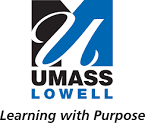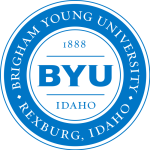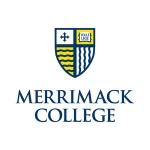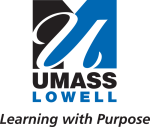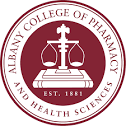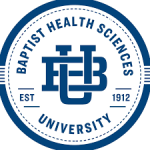A bachelor’s degree in public health can prepare you for a diverse array of careers, many high-earning.
This may be an excellent option if you’re interested in making a difference in your community and are ready to commit to a long-term educational program.
What Will I Learn in a Public Health Program?
Students in a public health program will learn much about statistics and public health concerns, as most careers in this field focus on examining unique health trends.
As a result, you can expect intensive statistics and mathematics courses alongside health training.
You’ll also learn about probability in public health, human health, environmental effects, epidemiology, public health policy and management, community health, and human development.
These introductory courses teach you what you need to know about protecting public health.
Furthermore, expect to take classes on the human genome, environmental protection, public health concerns, and infectious diseases.
You’ll learn how to control and prevent epidemics and pandemics.
You’ll get an in-depth look at how these disease vectors spread and how to manage them effectively.
Expect classes on senior citizens and children’s health and general health projects.
These unique courses provide in-depth information that improves your BS.
In addition, many people use these courses to choose a specialization that appeals to them, such as creating public health policy for elder care.
Often, many BS programs require a senior capstone project.
These projects include detailed research, intensive writing, and working to protect public health.
For example, you may present a project about the food system and how agriculture affects population health.
You’ll also take general English, History, Social Studies, and Physical Health courses.
Your BS aims to provide a well-rounded education that makes you a better person.
These electives can be chosen as you need and spread out throughout your degree’s development.
How to Choose a Good Program
Picking an excellent public health program requires a little research and knowing who to contact for help.
For example, you can look up public colleges and universities in your state to see what programs they provide.
Typically, staying in your state cuts back on costs and increases your chances of acceptance.
Next, research the quality of the school’s public health program to see if it fits your needs.
Note that schools have programs of varying qualities.
So, a university with an excellent reputation may have a weaker public health program.
Pay close attention to where a school thrives when picking a university.
Now, move on to gauging how much a school costs and what guidelines you must pass before attending.
For instance, do you need a specific high school GPA or standardized test score to attend university?
Do your research and find a facility that fits into your experience.
You can now examine what public health courses and specializations a school offers.
For example, if you’re interested in child healthcare, you should find a university that provides that specialization.
Many narrow their focus in this way to attract students from different interests.
After doing this research, list schools that interest you and contact their officials to learn more about what they offer.
Talk to the public health department head, the dean of students, and more.
Doing so can help you choose appropriately when picking a school.
Just as importantly, don’t forget about preparatory courses you’ve taken in high school or community college.
Do these transfer to the school and help decrease your attendance time?
Not all schools accept every class, so find one that takes as many as possible.
How Long Does It Take to Earn a Bachelor’s in Public Health?
A typical public school bachelor’s degree should take four years if you start the program without prior education.
Typically, your academic advisor will sit down with you and create a four-year plan that makes this process easier.
This step helps to direct your education more successfully.
However, there are ways you can shorten your education to cut back on your expenses.
For instance, community colleges provide low-cost education where you can take many elective courses.
Taking these classes, earning an associate’s degree, and transferring your credits are beneficial.
Sometimes, it may cut two or more years off your BA training, ensuring you spend as little time as possible in a high-cost university.
For students with minimal academic assistance, that’s a huge advantage.
It’s also great if you want to start a career ASAP.
Note that accelerated programs may also be available at some schools.
For instance, some may provide year-round programs that help you finish within 11-18 months.
Your class load may be heavy, but you’ll complete your degree more quickly and start your career faster.
How Much Does it Cost to Get a Bachelor’s in Public Health?
A bachelor’s degree in public health can cost between $25,000 to $40,000, depending on multiple factors.
For instance, your cost will be much higher if you attend a private school.
It may cost as much as $2,000 to $3,000 more per year, though it will vary depending on the school.
Your costs will also increase if you go out of state for your education.
This can nearly double your yearly fees for your education, adding heavily to your degree cost.
As a result, it is a wise idea to stay within your state, whenever possible, to minimize your expenses.
You’ll also have to pay heavily for research materials, lab time, books, etc.
Finally, remember living expenses, which can add thousands to your yearly attendance if you stay on campus.
Expect to pay at least $50,000 to $60,000 for a typical public health bachelor’s degree.
What Can I Do With a Bachelor’s in Public Health?
A bachelor’s degree in public health can prepare you for many unique career paths.
For example, many go on to work in for-profit organizations focused on planning public health care.
These can include various planning teams and research crews that help gauge better public health policies.
However, other students enter healthcare, non-profit organizations, academic organizations, and governmental teams.
In addition, you can find careers in multiple jobs, such as community health specialists, prevention teams, and teachers in various fields.
Health education specialists may work with public schools, private companies, and public organizations to teach the community about better health steps.
However, you may transition into careers like nutritional support or research-based care in many communities.
You may also become an epidemiologist to gather information about diseases and better plan treatment and control.
These professionals are often in high demand from state and federal officials and can progress to much higher career paths, including as CEOs of various public health management firms.
Professionals in public health can anticipate salaries between $68,000 to over $82,000, depending on their job path.
This makes public health a fairly profitable career path.
You may even progress to various management positions if you start your career on the right track.
If you want to transition into higher education teaching opportunities, you need a master’s or doctorate, depending on where you teach.
While this will cost you more money, it’s an option that may appeal to those who want to help others prepare for a career in this field.
Should I Get a Bachelor’s in Public Health?
A bachelor’s degree in public health is a good option for someone who wants to help society become a better place.
People in this field often work in meaningful careers and support set healthcare policy.
There’s a high demand for these professionals, so you’ll likely find a job quickly.
This field is in particular demand after the COVID-19 pandemic caught the world by surprise.
A highly trained group of public health professionals could help minimize the risk of a further pandemic and support current healthcare initiatives in this field.
Demand in this field is likely to increase by two- or three-fold in the coming years, providing many unique career opportunities for those who enjoy helping others or working with statistics.
It’s also a great career option for those who enjoy statistics and can analyze them properly to track health trends.
Many people in public health also transition to educational careers, working as university professors or high school teachers.
You’ll need to get a degree to teach in either of these fields, though accelerated options are available.






















































